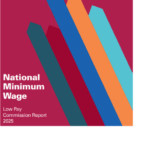
DfE research reveals funding to early years providers is insufficient
The Department for Education (DfE) has published its recent Pulse surveys of childcare and early years providers revealing that almost half of group-based providers do not have sufficient funding to cover their costs.
The DfE has been conducting provider pulse surveys since 2020 to gather findings relating to the childcare and early years sector. The latest report from the two surveys, carried out in May and July 2024, covered ten topics including: the entitlements expansion; capacity and places; workforce and funding.
The three categories of providers surveyed were group-based, school-based and childminders. A total of 1,478 providers took part in May (18 per cent response rate) and 1,331 in July, totalling a 16 per cent response rate.
Asked whether providers are facing challenges making it difficult to deliver the 15 hours of funded childcare per week, 48 per cent of group-based providers responded yes in May and 40 per cent in July.
The most common challenge that group-based providers faced in delivering the 15 hours of funded childcare was not having enough staff to cover new places; 67 per cent reported this in May and 59 per cent in July.
When surveyed in July, group-based providers had on average one vacancy available and typically received 7 (5 in May) applications per vacancy. The surveys revealed that filling a vacant post took on average 14 weeks during this time and 13 weeks in May.
The survey reported that common actions taken by all three providers to tackle staffing challenges included managers working more with children to meet staff to child ratios, increasing pay and having more staff working overtime.
The second most common challenge facing group-based providers was insufficient funding rates. When asked in May, 43 per cent of providers said that current funding rates do not make additional places worthwhile. Only 10 per cent of group-based providers reported that they thought the funding rates for 2024-25 would increase their profitability.
In addition, the report highlighted issues for group-based providers regarding space and the ability to expand. In May 44 per cent of providers sited lack of available or suitable space as an issue and 50 per cent of providers reported having the same issue in July. Insufficient funds to expand premises were also captured in the data as a barrier to being able to deliver the 15 hours of funded childcare per week. Only 9 per cent of group-based providers in both surveys reported to increase their capacity.
Other challenges reported included concerns around business rates if premises were expanded as well as limitations for expanding if premises are rented and the landlord refuses permission.
In the interest of providing a representation of providers across England, the data in the report has been weighted.
The DfE also published The Providers’ finances: Evidence from the 2023 Survey of Childcare and Early Years Providers report which revealed that just over half of providers said their income exceeded their costs in 2023. Around 58% of this income came from parent fees.
This data is now out of date as fieldwork was carried out in 2023, during the period leading up to significant reforms in the funding of childcare in England. These income proportions will have changed significantly in 2024 with the expansion of funded early education places, including two-year-olds and from September under twos.
Staffing costs made up 73% of total costs for private providers and 79% of voluntary providers. Rent/mortgage costs were 10% of total costs followed by food at 4%.
Mean hourly rates paid to providers for three and four-year-old places were £4.83 and £5.62 for eligible two-year-old places. A total of 87% of private providers made additional charges to parents but this only made up a small proportion of overall income.
Regional differences across England meant that some areas had different statistics compared to others.
The report concludes that there are challenges for the sector to deliver the expansion of childcare places:
- Only around half of providers received enough income to cover their costs which increased by 6.2% compared to the previous year – this could impact providers’ ability to meet demand
- Larger providers who enjoy economies of scale might find it easier to accommodate demand increases
- The proportion of provider income from government funding will increase in 2024
- There is a significant and persistent gap between government funding levels and parent-paid fees which suggested that providers were cross-subsidising entitlement hours with parent-paid fees
- England
Similar Articles
Government research shows school-based nurseries are not delivering flexible provision to its communities

One in seven childcare professionals paid around minimum wages


